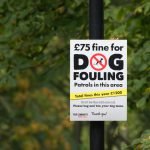Correct waste disposal is your responsibility

Modern life pushes us to go about each activity as quickly as possible in order to get more things done. In that rush, it is easy to create bad habits and take for granted the importance of performing our routine tasks and activities properly. Lack of information can exacerbate bad habits and once they are established they can have a pervasive effect on our lives. In terms of waste disposal, these bad habits affect the environment as well.
This month I have enjoyed the hot weather in London going out for walks and have often observed rubbish bags labelled as “Environmental Crime” or “Fly-tipping”. I started asking myself why so many people were engaging in this practice and what are the consequences for the environment and our health. Why is it a crime? How is this punished and who is responsible?

I started my research by understanding what can be classified as an environmental crime in terms of waste disposal. The most common offence is fly-tipping, which is broadly defined as “the illegal disposal of household, industrial, commercial or other ‘controlled’ waste without a waste management licence”. Littering and dog fouling are other waste crimes that can affect the environment and our health.
All the bags I have observed in my walks were fly-tipping cases and they are now, along with illegal waste sites and operators, the main concern for local authorities in the UK. The offences have increased over time according to statistics and totalled more than 1 million in the year 2016/17, costing £57 million to local authorities. This is money that could be going to improving neighbourhoods or parks instead.
Most of the fly-tips are household waste and some are believed to result from ignorance of local regulations. The best thing you can do is check with your local council on general rules regarding waste disposal and check it again every time you need to dispose of something different or unusual. If you are not sure what is your local council or its website address, you can search by the postcode here. You can also check our Waste and Recycling section to get more information and tips.

Even though regulations vary locally, fly-tips normally consist of furniture, bulky items, electronics, construction material and garden waste placed at times and locations not permitted. Most of the cases I’ve observed in my walks seem to consist of construction material spread through several regular waste bags. Please be aware that if a type of waste is prohibited it may not be because of its size, and breaking it up into smaller pieces and bags won’t make it legal.
Incorrectly disposed waste can pollute and even release toxins in the soil, air and water, impacting plants, animals and human beings directly. That’s why fly-tipping is a punishable environmental crime that is not taken lightly: fines can go up to £50,000 and imprisonment sentences up to 12 months. Serious cases processed by the Crown Court can result in unlimited fines and 5 years of imprisonment.

It is the local authorities’ responsibility to provide information to the public about waste disposal, but it is everyone’s personal responsibility to check and follow these instructions. If you have never checked your local information, please check it now. They may be very simple and you may be following them correctly but as they differ locally, you may have adopted habits that are not appropriate for your current location. Check your council website or give them a call and Green It Yourself Now!








